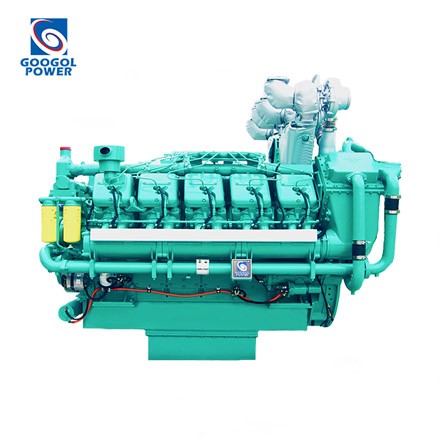- HOME
- ABOUT GOOGOL
- PRODUCTS
DIESEL ENGINE
GENERATOR SETS
- DOWNLOAD
- CASES
- NEWS
- CONTACT US

(1) BATTERY GROUP INSPECTION
Since backup power sources are not frequently used, whether the generator can start properly depends on battery maintenance. Common issues with the battery group include having voltage but no current. In such cases, the sound of the starter motor electromagnetic valve being engaged can be heard, but it fails to drive the connecting shaft. Reasons for battery groups not shutting down include the following:
(1.1) Stopping the battery from charging during the testing process can result in insufficient battery power.
(1.2) Mechanical oil pumps, driven by belt transmission at rated speeds, require significant oil pumping. However, insufficient power supply to the battery group during shutdown can prevent the electromagnetic valve from creating enough suction to hold the spring in the shut-off valve.
(1.3) The battery typically has a lifespan of two years and needs irregular replacement.
(2) CHECK THE STARTING ELECTROMAGNETIC VALVE
While the generator is running, a 'look, listen, touch, and smell' method has been devised for inspection. Listening during startup is crucial. For instance, with an original American Cummins generator, pressing the start button initiates the startup within three seconds. Within this time, two’click’sounds can be heard. If the second sound is not heard, check if the starting electromagnetic valve is functioning correctly. If the electromagnetic coil burns out, the generator will not start.
(3) DIESEL AND LUBRICATING OIL INSPECTION
As the generator set remains stationary for extended periods, various materials within the generator undergo complex chemical and physical changes involving oil, coolant water, diesel, air, etc., causing the generator set to discharge. This aspect particularly relates to oil issues. For fire safety, diesel fuel tanks are usually placed in enclosed rooms. Due to temperature variations, water vapor condenses in the at-mosphere, forming droplets on the inner walls of the fuel tank, flowing into the diesel, causing the water content in the diesel to exceed standards. This diesel, when entering the high-pressure fuel pump of the diesel engine, can corrode the precision coupler-the plunger, causing severe damage to the unit. Generator lubricating oil has a shelf life. If stored for an extended period, the physical and chemical properties of the lubricating oil change, leading to deteriorated lubrication when the unit operates and making it susceptible to component damage.